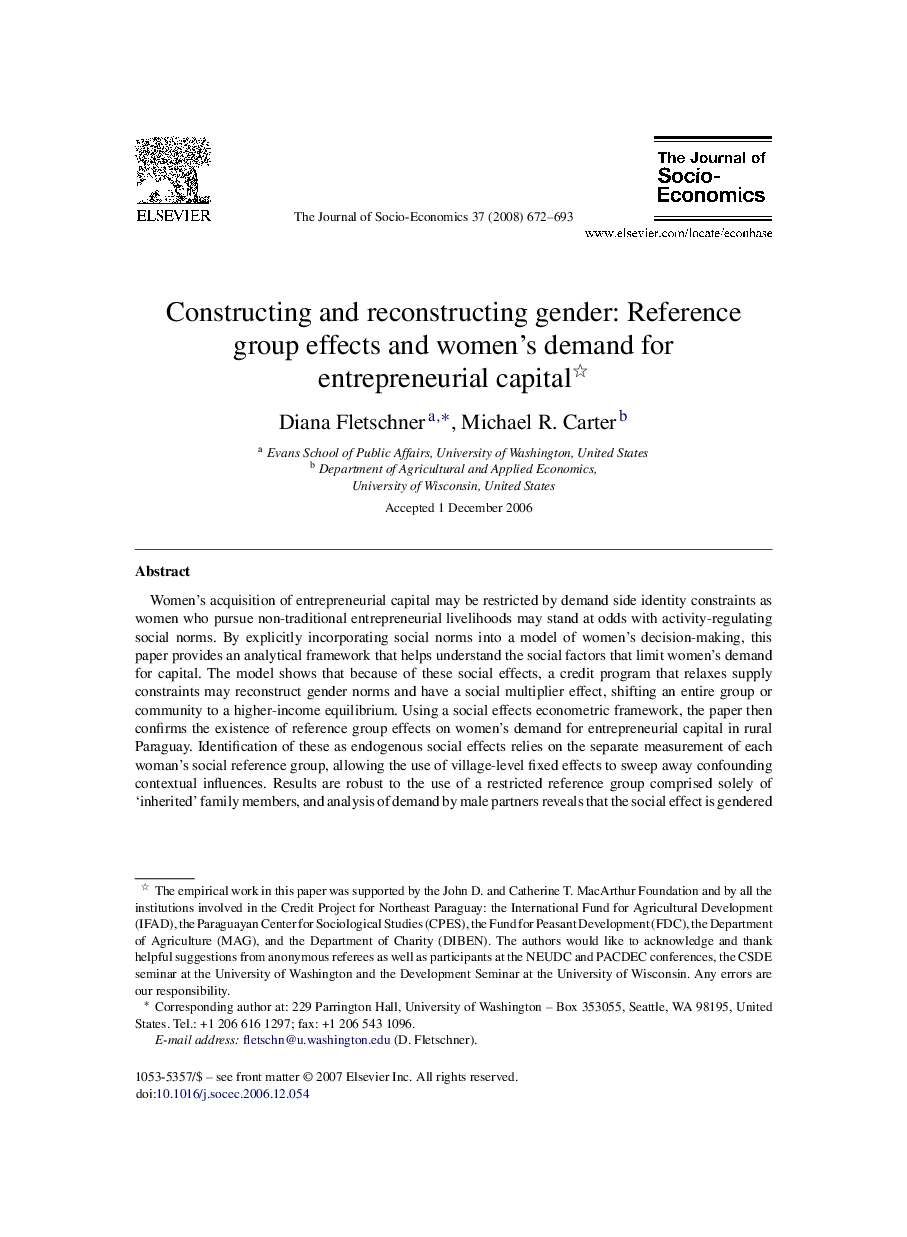| Article ID | Journal | Published Year | Pages | File Type |
|---|---|---|---|---|
| 970499 | The Journal of Socio-Economics | 2008 | 22 Pages |
Women's acquisition of entrepreneurial capital may be restricted by demand side identity constraints as women who pursue non-traditional entrepreneurial livelihoods may stand at odds with activity-regulating social norms. By explicitly incorporating social norms into a model of women's decision-making, this paper provides an analytical framework that helps understand the social factors that limit women's demand for capital. The model shows that because of these social effects, a credit program that relaxes supply constraints may reconstruct gender norms and have a social multiplier effect, shifting an entire group or community to a higher-income equilibrium. Using a social effects econometric framework, the paper then confirms the existence of reference group effects on women's demand for entrepreneurial capital in rural Paraguay. Identification of these as endogenous social effects relies on the separate measurement of each woman's social reference group, allowing the use of village-level fixed effects to sweep away confounding contextual influences. Results are robust to the use of a restricted reference group comprised solely of ‘inherited’ family members, and analysis of demand by male partners reveals that the social effect is gendered and hence likely to reflect social norm effects rather than endogenous social learning or exogenous social effects.
